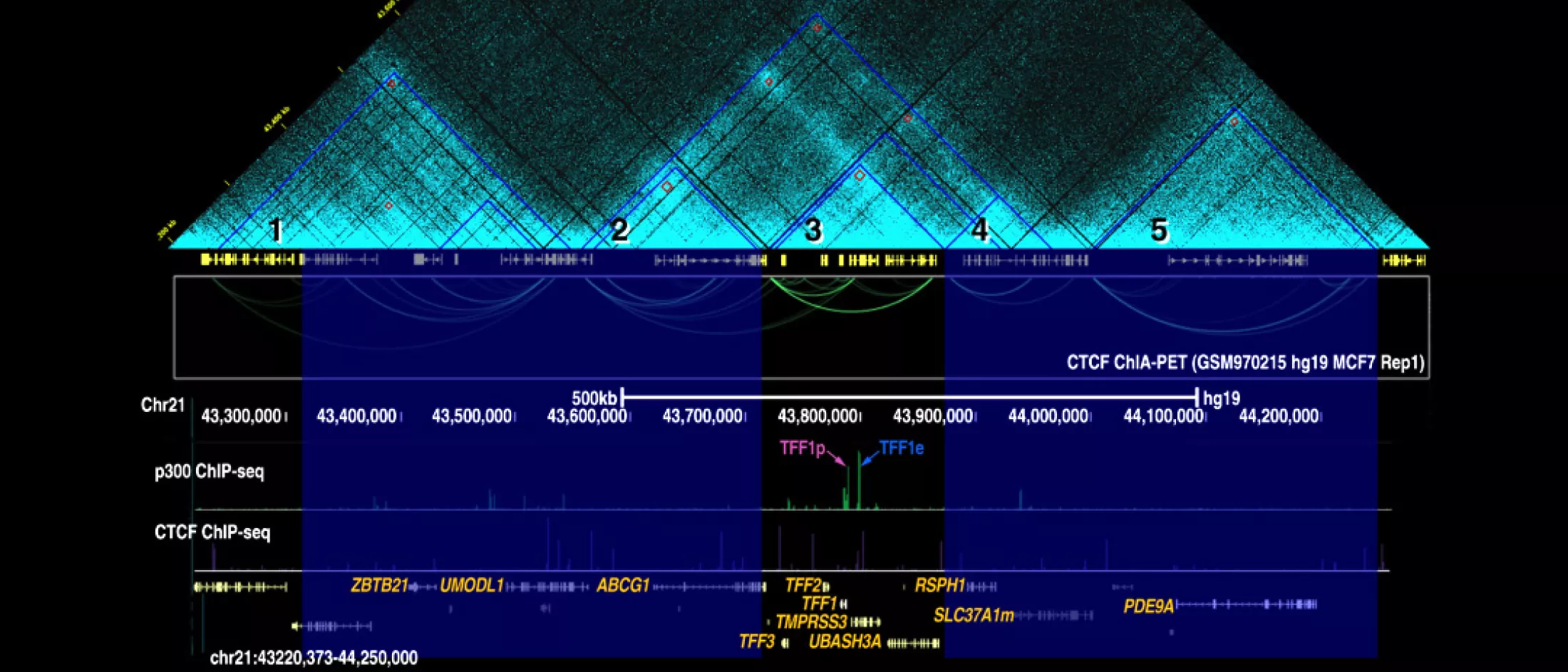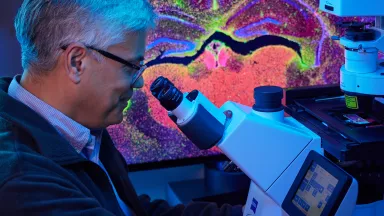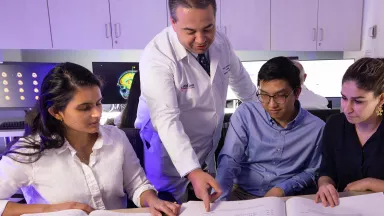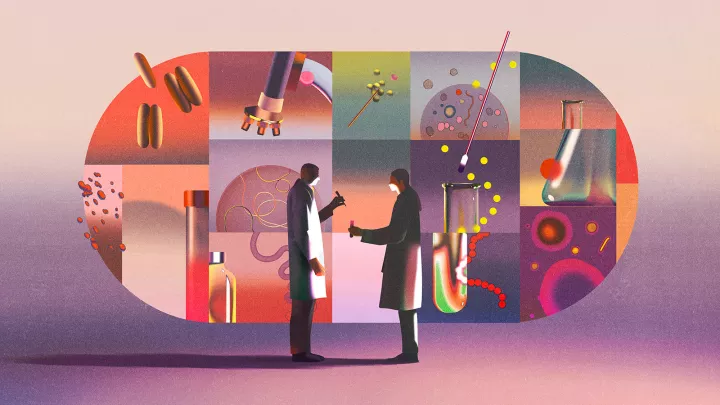Our Approach to Rett Syndrome

The Montefiore Einstein Tri-State Rett Syndrome Center is an international leader and is the largest center in the United States, as well as the only center in the tri-state area, focused exclusively on the diagnosis and treatment of Rett syndrome and other Rett/MECP2-related disorders, as well as CDKL5 Deficiency Disorder and FOXG1 syndrome, in children and adults. We are among an elite group of 18 International Rett Syndrome Foundation (IRSF)-designated Centers of Excellence in the nation providing best-in-class clinical care and leading research and clinical trials, expanding the possibilities of treatment for individuals with Rett syndrome.
Our multidisciplinary team of world-renowned experts are thought leaders at the forefront of Rett syndrome care, research and education. We utilize the latest and most advanced technologies to provide comprehensive personalized care and address the complex and diverse needs of individual patients and their families to dramatically alter the trajectory of their interpersonal communication skills and thus profoundly expanding their inner voice and rewarding relationships. We are an international referral site for complex Rett syndrome cases, and are ranked in the top 1% of all hospitals in the nation for Neurology as well as one of the nation’s top-rated children’s hospitals, according to U.S. News & World Report.
Those with Rett syndrome, a rare genetic neurodevelopmental disorder affecting mostly girls, often present with a broad spectrum of symptoms, including impaired speech, cognitive and motor abilities, seizures, gastroesophageal reflux, constipation, scoliosis, as well as difficulties with learning, heart function, sleep, breathing, chewing, swallowing and digestion. Our interdisciplinary team is comprised of pediatric neurologists, pediatricians, physiatrists, psychiatrists, neuropsychologists, sleep medicine specialists, gastroenterologists, cardiologists, pulmonologists, urologists, orthopedists, epileptologists, endocrinologists, dentists, neuroradiologists, neurogeneticists, voice and swallow pathologists, nutritionists, and physical, occupational, and respiratory therapists, among others, who collaborate to address the complex needs of each patient and their families.
An Ongoing Commitment to Rett Syndrome Research & Education
Our center was born out of the optimism derived from scientific findings that even severe symptoms of Rett syndrome can be reversed and our belief that these experimental results will translate into effective treatments and cures. We are committed to advancing scientific discoveries and innovation through continued Rett syndrome research. Investigational therapies are also offered through our clinical trials, which can provide access to emerging treatments that are otherwise unavailable.
We prioritize and lead educational efforts and support for patients, caregivers, family members, healthcare providers and the community, and we continue to develop and maintain programs, classes, research, and educational symposia that contribute to our understanding and management of Rett syndrome.

Advanced Treatments
We diagnose and treat children and adults with Rett syndrome using a multidisciplinary team approach that includes the latest and most advanced diagnostic and treatment techniques and technologies to facilitate precision care plans. Our world-renowned leaders in the management of Rett syndrome employ advanced cellular molecular and nano-technologies, as well as AI platforms including dynamic brain-computer interfaces.
We offer access to newly emerging treatment modalities, including advanced gene therapies and newly approved medications, such as trofinetide, the first FDA-approved targeted therapy for Rett Syndrome, for which we are spearheading clinical trials. In addition, we utilize adaptive devices to enhance mobility and maximize function and quality of life for each patient and their family. Treatment includes medications for improving motor difficulties and controlling seizures, as well as occupational and physical therapy to help patients develop skills for performing activities of daily life.
Committed to Unlocking New Treatments for Rett Syndrome
With more than 15 years of experience since the inception of our center, we continue to conduct innovative basic, translational and clinical research and work together with our Rose F. Kennedy Intellectual and Developmental Disabilities Research Center to advance our knowledge and treatment of all aspects of Rett syndrome and to offer novel diagnostic and therapeutic options to patients and their families.
Our scientists and researchers are studying the relationship between Rett syndrome and autonomic dysfunction, cardiac abnormalities, attention, visual search, seizures, dysphagia and swallowing. We are also developing consensus-based guidelines through the Rett Syndrome Registry and conducting biomarker and outcomes research in individuals with Rett syndrome.

Meet Your Tri-State Rett Syndrome Center Leader
Our elite multidisciplinary team of experts is at the forefront of Rett syndrome care and the development of therapies. From prevention to treatment options, we will propose an individualized treatment plan that fits each patient’s needs and lifestyle.
About Rett Syndrome
Rett syndrome is a neurodevelopmental disorder. It is characterized by typical early growth and development that is then followed by a slowing of development.
Rett syndrome was first reported by Dr. Andreas Rett in 1966. Over time, the effects of Rett syndrome can lead to cognitive, sensory, emotional, motor, and cardiac issues as well as autonomic nervous system problems like difficulties with digestion or breathing.








